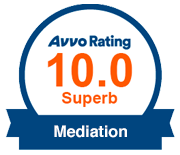Can I Get a Legal Separation?
Can I get a legal separation? The short answer is “no”, but that’s because in Maryland, there is no such thing as a “legal separation”. So what constitutes a separation? You and your spouse living separate and apart with the intention of ending your marriage, and without cohabitation or sexual intercourse during that time. You are not required to file anything with the courts or sign any documents to effectuate a separation.
However, you may need separation as grounds to begin the divorce process. There are two types of divorce in Maryland: 1) a limited divorce, which does not actually divorce you and your spouse, but brings you in front of the court so the court can temporarily resolve certain issues such as child support, child custody, alimony, or use and possession of the marital home; and 2) an absolute divorce which is the final divorce and all issues can be heard by the court. In order to file for divorce, you need grounds. The most common, and easiest, ground for divorce is separation. For a limited divorce, you need to be separated a minimum of one (1) day, but for an absolute divorce, you need to be separated for a minimum of twelve (12) months, unless you have some other grounds for divorce such as adultery.
The most recent ground for divorce that was implemented by the legislature was a no-fault ground of mutual consent. A divorce on the basis of mutual consent actually requires no separation period. However, it does require that you and your spouse have a written agreement, to be filed with the court, which resolves all issues related to alimony, the division of marital property, and child custody and child support, if you have minor children. This agreement essentially tells the court that you and your spouse have resolved all issues on your own, the court does not need to decide anything for you, and you and your spouse both consent to being divorced. If you and your spouse are able to resolve all issues on your own, or with the assistance of a mediator or your attorneys, this is the easiest and most cost-effective way to get divorced.
If you are considering divorce, contact our office today to talk to an experienced attorney about how to get you divorced in the least expensive and least contentious way possible.









